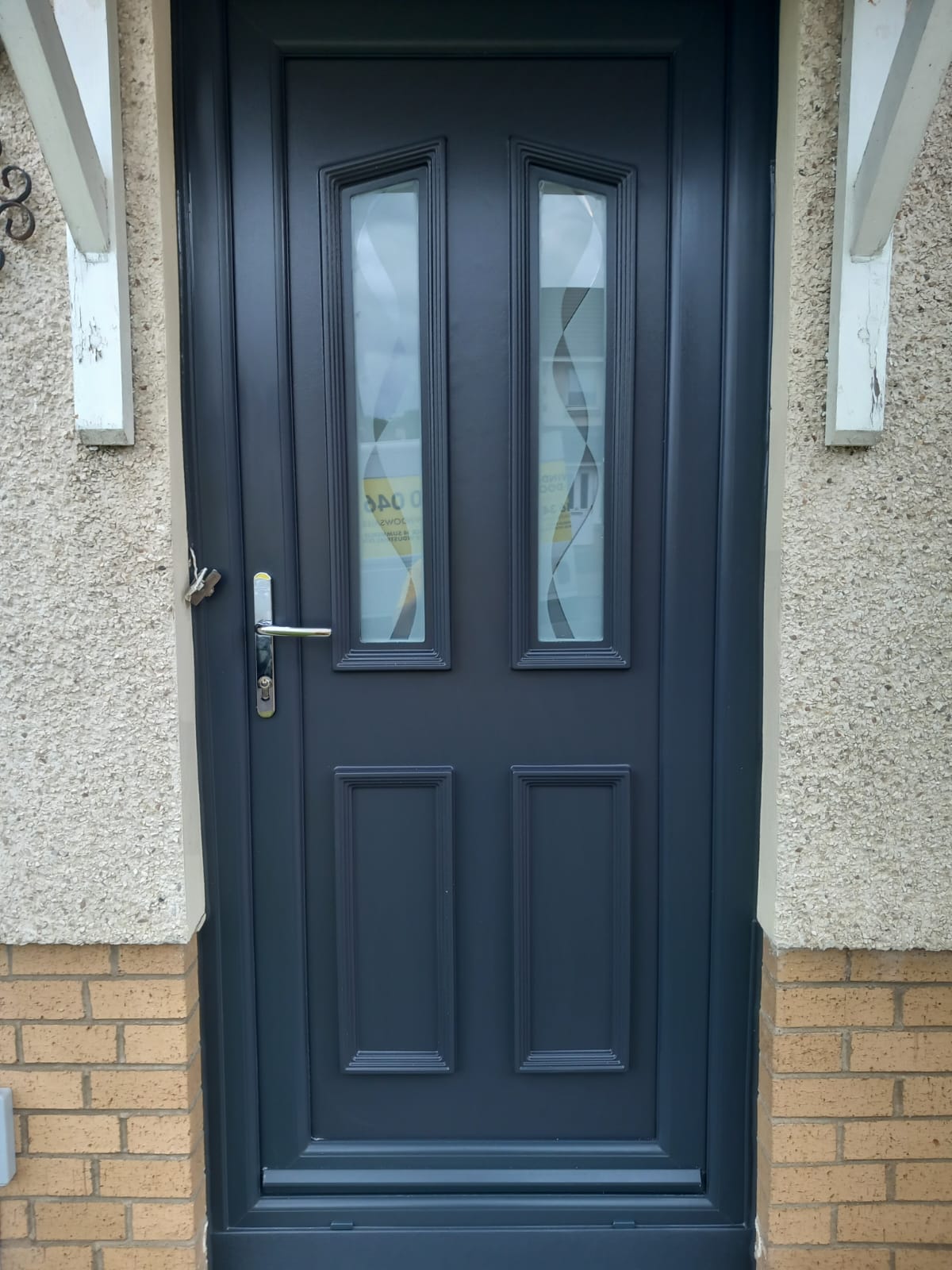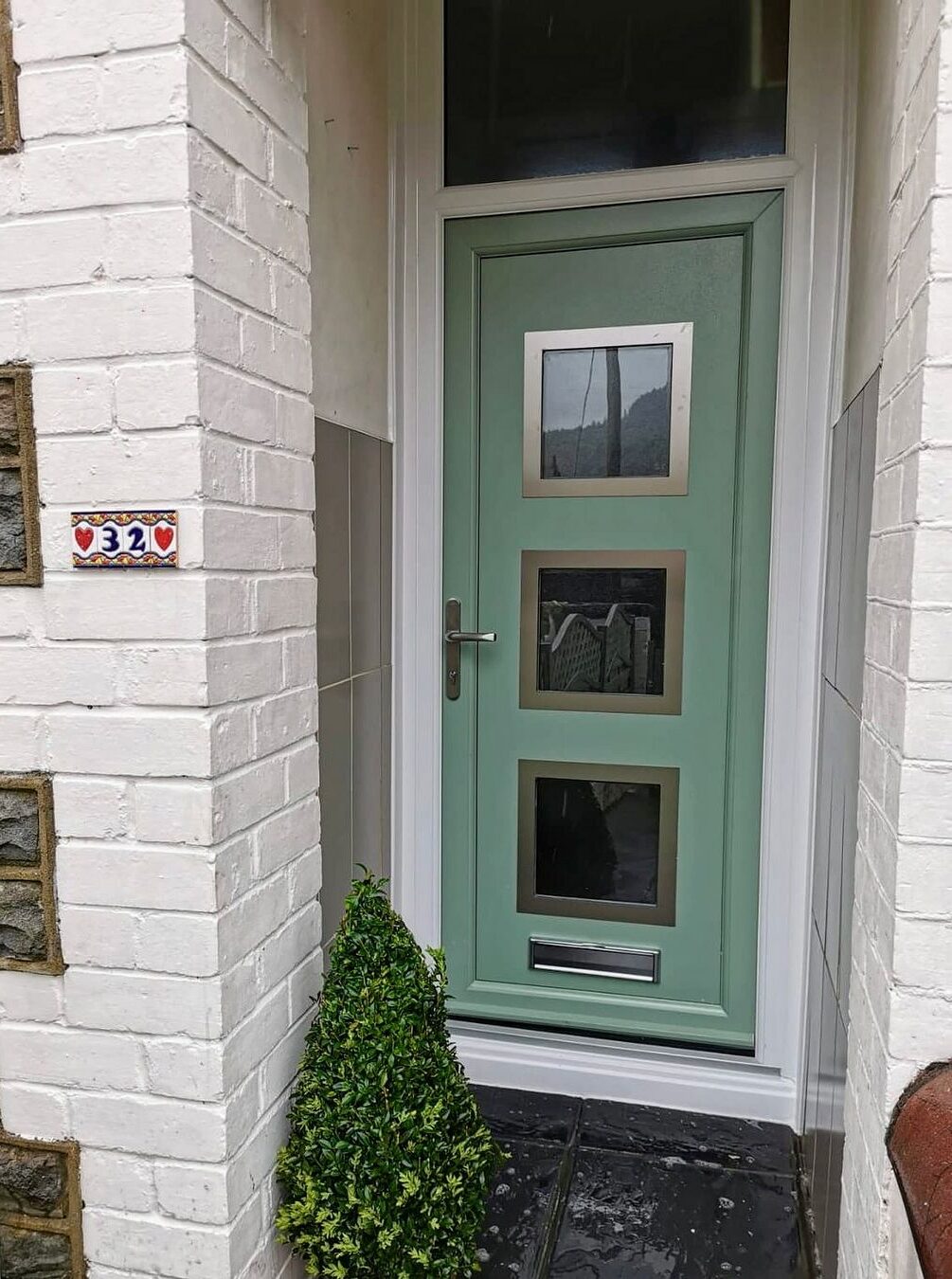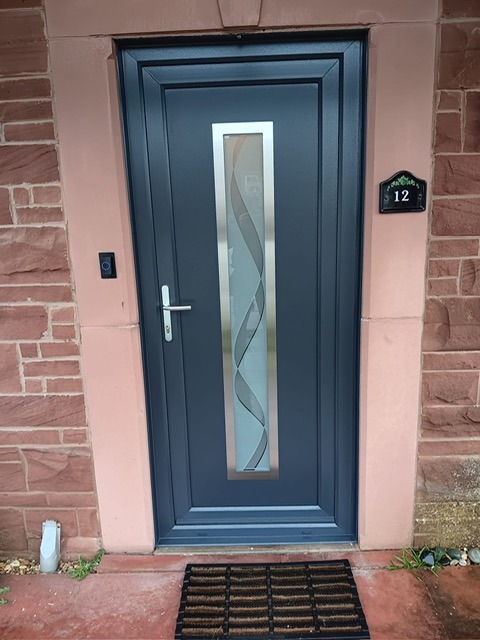Are uPVC Doors Environmentally Friendly?
Published: 29th July 2024
When it comes to choosing building products for your home or commercial property, sustainability and environmental impact are more important than ever. One common question is ‘Are uPVC doors environmentally friendly?’ In this blog, we discuss what makes uPVC doors and panels an environmentally friendly choice.

What is uPVC?
UPVC is an abbreviation for un-plasticised Poly Vinyl Chloride. Poly Vinyl Chloride (PVC) is a lightweight yet robust type of plastic which is used extensively in construction products such as conservatories, pipes, fittings and flooring and is most widely known for its use in doors and window frames. The ‘u’ stands for un-plasticised, which means the material hasn’t been softened during the manufacturing process to help the material retain its rigidity and strength.
The Green Benefits of uPVC Doors
uPVC is a popular choice for doors due to its durability and energy efficiency. But how environmentally friendly is it?
- Energy Efficiency – One of the primary benefits of uPVC doors is their excellent thermal insulation. Protected by Heat Reflective Technology, Hurst uPVC doors have a heat reflective skin which when combined with an extra high-density core, provides excellent insulation. This means your door does more than just look great; it also helps block noise and heat from entering or escaping your home. Lower energy consumption translates directly to reduced greenhouse gas emissions, making uPVC doors a smart choice for eco-conscious property owners.
- Durability and Longevity – uPVC doors are incredibly durable and can last for decades without needing replacement. Unlike wood, they don’t warp, rot, or require frequent repainting. This longevity means fewer resources are used over time, and less waste is generated from replacing doors.
- Low Maintenance – Maintaining uPVC doors is a They don’t need painting and a simple wipe down with soapy water keeps them looking new. This low maintenance requirement means fewer chemicals are used, further reducing their environmental impact. Learn more about how to properly maintain a uPVC door now.
Are uPVC panels environmentally friendly?
uPVC panels share many of the same benefits as uPVC doors. They offer excellent insulation, durability, and require minimal maintenance. But there’s more to their environmental friendliness:
- Recyclability – One of the standout features of uPVC is that it can be recycled multiple times without losing its quality. This means old uPVC panels don’t have to end up in landfills; they can be transformed into new products, reducing the demand for new material.
- Manufacturing Impact – The production process for uPVC panels typically has a lower carbon footprint compared to materials like aluminium or timber. Advances in manufacturing technology have also made the process more energy-efficient and less polluting.
What makes Hurst uPVC door panels environmentally friendly?
If you’re considering Hurst uPVC door panels, you’re choosing a product designed with both performance and sustainability in mind. We’re committed to minimising our environmental impact at every opportunity which is why our uPVC door panels feature a fire-retardant core material with no CFCs or HFCs, is non-toxic and we recycle the uPVC skins, by separating the skin from the core. In addition, waste materials are disposed of responsibly wherever possible.
Can uPVC be recycled?
One significant benefit of choosing uPVC, is that it is able to be recycled. Here’s how the recycling process works:
- Collection: Old uPVC products are gathered from construction sites, renovation projects, or from consumers.
- Sorting and Cleaning: These materials are sorted and cleaned to remove any impurities.
- Shredding: The clean uPVC is then shredded into small pieces.
 Reprocessing: These pieces are melted down and reformed into new uPVC products.
Reprocessing: These pieces are melted down and reformed into new uPVC products.
This process can be repeated multiple times, making uPVC a sustainable material choice.
When it’s time to replace your uPVC door panel, consider these environmentally friendly options:
- Recycling Centres: Many local recycling centres accept uPVC. Check with your nearest centre to ensure they handle these materials.
- Repurposing: If the panel is still in decent condition, get creative! Use it in garden projects, DIY furniture, or other home improvement ideas.
- Local Waste Collection: Some waste collection services handle uPVC recycling. Check with your local providers for options.
uPVC doors and panels are not only a practical choice for your property but also a responsible one for the environment. Their energy efficiency, durability, and recyclability make them a standout option for eco-conscious consumers. By ensuring proper disposal and recycling, you can further minimise their environmental impact.
Ready to explore uPVC options for your home or business? Find your local Hurst Doors installer now.

